Responsible gun owners spend considerable time at the gun range training for the possibility they may have to use their firearm as a last-resort tool to protect themselves or their families. Most concealed carriers likely don’t spend enough time at the range, and even fewer think about the immediate consequences of a “justified” self-defense shooting — especially if there is a fatality involved.
Free Range American spoke to a Texas attorney who is more than familiar with self-defense cases involving firearms to find out exactly what you should do and what you should be concerned about immediately after a self-defense shooting.
In short, if you are a concealed carrier, make contact with an attorney and keep their cell number in your phone.
“Saying, ‘I was in fear for my life,’ doesn’t get taken that seriously in a lot of jurisdictions anymore because it’s become, you know, a trope. But ‘I thought I was going to die’ means exactly the same thing, and it sounds more natural. People take it more seriously. But beyond that, just talk about facts. Don’t talk about what you did. Then it’s time for the lawyer.”
—Emily Taylor, attorney
RELATED – Click-Clack! The Best Shotgun Ammo for Home Defense
The Real-Life Stakes
Life isn’t like the movies. And while plenty of gun owners will spout the banal old saw, “It’s better to be judged by 12 than carried by six,” things are a lot more complicated than that, no matter what state you call home.
You might think it will be easy to convince 12 reasonable people that your actions were justified if it even gets to that point. Still, in many cases, a district attorney will try to move heaven and earth to convince those 12 people that you acted recklessly or used excessive force.
According to the experts, what you do immediately after any self-defense shooting has a major impact on whether you get to go home to your family or end up entangled in a sordid and expensive legal battle that might land you in a cell.
The list of criminal charges that could be brought against you after a self-defense shooting, depending on the circumstances, is pretty freakin’ long. In many states, the district attorney will charge you regardless of the circumstances and let a jury sort things out.
At that point, you’re mired in a 3- to 5-year process that sorts through facts, rumors, and a bunch of skeletons you didn’t even know were hiding in your closet.
Don’t be fooled — if you are a legal concealed carrier and you shoot and kill someone in self-defense, you are almost certainly going to be hit with a murder or manslaughter charge — and a lot of factors go into how far that charge goes.
If it drags on for years, you’ve probably lost your job, your name has been dragged through the mud, and you have to hope that a jury does the right thing at the end of the day. This is a very real possibility if you’re a regular joe and especially if you’re case isn’t cut and dried.
Free Range American had the opportunity to sit down with attorney Emily Taylor to discuss what to do if you ever have to discharge your weapon in self-defense. Taylor is a former felony prosecutor who has been practicing in firearms and self-defense law for more than nine years.
Taylor’s firm serves as the independent program attorneys for U.S. Law Shield, which funnels a lot of self-defense work to them. Members of her firm also serve as the legislative advisors and lobbyists for Gun Owners of America, Texas.
She also frequently instructs law enforcement and civilians on gun laws and the use of deadly force. You might know her and her firm better from their popular YouTube channel, Armed Attorneys, with more than 218,000 subscribers.
As a word of caution: This article only begins to touch on what the average citizen needs to know about a highly complex subject. This in no way serves as legal advice. It’s general advice on a nuanced subject with a number of variables. Take it all as a word of caution and listen to your attorney.
RELATED – Get the Best Concealed Carry Gun That Works for You
What To Do Immediately After a Self-Defense Shooting
So, the unthinkable has happened, and you’ve been forced to discharge a firearm and send lead into another human being’s body in self-defense. What now?
Taylor said a person involved in a shooting generally should never leave the scene unless they need to escape further danger and get to a safe location.
“You do want to make sure that you’re safe, and if the scene isn’t safe, it is perfectly acceptable to get to a safe place,” she said.
“To give you an example, I had a client, and he ended up going on trial for murder and was acquitted. But he felt the scene wasn’t safe after he shot because [his assailant] was still running back to his car to get his AK when my client drove away.
“Now [the assailant] ended up expiring pretty shortly after that because you can only get shot six times with a .45 and live for so long. But my client got in his car. He drove 6 to 7 minutes on the phone with 911 the whole time. He ended up parking at a gas station where it was well-lit, and he felt like he could take a defensive posture if the guy came after him. That was an issue. It was like, ‘Why didn’t you stay on the scene? What were you running from?’
“That action, which is so understandable, can still become an issue. And of course, the jury ultimately said, ‘No, he was on the phone with 911 the whole time. He was just getting somewhere safe. We understand.”
RELATED – Glock 26: Pocket-Sized Perfection for Three Decades
Self-Defense Shooting Aftermath: Making That 911 Call
Taylor said if you find yourself in such a situation, you should be careful when making that initial call to 911.
“Remember, many, if not all, 911 systems begin recording you as the phone is ringing, not when the operator picks up the phone. The best thing you can say is, ‘My name is X, I’m at this location, this is my description, I was attacked by so-and-so.’ What you’re doing is framing it in terms of what happened and not in terms of what you did.”
She said it’s crucial for police to arrive knowing you are the victim. Taylor said lawyers disagree on what you should actually say to police when they arrive.
Some say making a short defensive statement is best, like, “I had to defend myself.” Some insist you shouldn’t say anything at all.
“I would say, if you have a local attorney in your jurisdiction, you should talk to them and see what they recommend,” Taylor said. “It never hurts you to tell police, ‘I thought I was gonna die.’
“Saying, ‘I was in fear for my life,’ doesn’t get taken that seriously in a lot of jurisdictions anymore because it’s become, you know, a trope. But ‘I thought I was going to die’ means exactly the same thing, and it sounds more natural. People take it more seriously.
“But beyond that, just talk about facts. Don’t talk about what you did. Then it’s time for the lawyer.”
RELATED – Glock 17: Respect the OG Wonder-Nine
What to do When the Police Show Up
According to Taylor, your next move immediately after you hang up with 911 is to dial your attorney.
The average police response time is about 8 1/2 minutes (if you live in a city such as Detroit, Los Angeles, or Atlanta, it could be considerably longer). And when the police pull up on the scene, remember, from their perspective, it is a homicide investigation. And you’re the guy with the gun.
Exactly what you tell law enforcement when they arrive depends on what your lawyer tells you to say.
“I get these phone calls, and sometimes I tell them to say something as simple as ‘He attacked me. He started shooting, or I saw a gun, and I shot,’” Taylor said. “That’s it.”
After providing that short statement, Taylor tells her clients to invoke their Fifth Amendment right to remain silent.
“Tell them, ‘I’m not going to say anymore without a lawyer.’
“Sometimes it’s not prudent to say anything at all until you can give a full statement with your lawyer present,” Taylor said. “It’s law enforcement’s investigation, and you’re suspected of a crime. They want as much information as many times as they can get it.”
Taylor explained that if you don’t invoke your rights and make only one attorney-approved statement, law enforcement ends up using a bunch of statements — your statement from the 911 call, your statement to the first patrol officer, your statement to his sergeant, your statement to the homicide detective, and so on, and any natural inconsistencies they might introduce.
“By then, you’ve got at least four statements, and they aren’t going to match because you’re a human being. Your brain doesn’t work that way,” Taylor said. “The reason police officers get 72 hours to make their statement is because your brain is still filtering what happened, usually for days.”
Taylor explained that as you come off your adrenaline dump and begin to process what happened after a traumatic or violent event, like a shooting, new things will come to you. You might fill in more blanks during an interview with a detective than you did during your 911 call.
Those innocent inconsistencies could be construed as lies.
RELATED – The 9mm Pistol: Dominating 120 Years of War and Peace
No Matter What, Keep Quiet Until You Lawyer Up
Taylor acknowledges that most people don’t walk through everyday life with an attorney on speed dial. Her advice if you don’t have a lawyer you deal with regularly is to dummy up until you can get one.
However, she says saying something like “Listen pig, I’m not talking to you,” is never a good idea.
Instead, she advises that you always remain polite with law enforcement.
“Officer, I would love to talk to cooperate. I’ve just had the worst day of my life, and I cannot give you a statement without first speaking to an attorney,” is a much safer way to handle the situation, Taylor says.
Taylor says to be prepared for this to not always be met with returned politeness — some officers may get upset and even threaten you with jail if you don’t give a statement right then.
“If you do not give a statement at the scene, the chances that you go to jail that night are high,” Taylor said. “But the chances that you stay out of prison for the rest of your life are way better than if you had given a statement that night.
“You have to trade a night or two of miserable discomfort for potentially the rest of your life.”
Be Familiar With Your State Laws
Taylor recommends that anyone who carries a firearm for self-defense should have an attorney, plain and simple.
“I would also advise reviewing the law and figuring out how it is applied in your state,” she said.
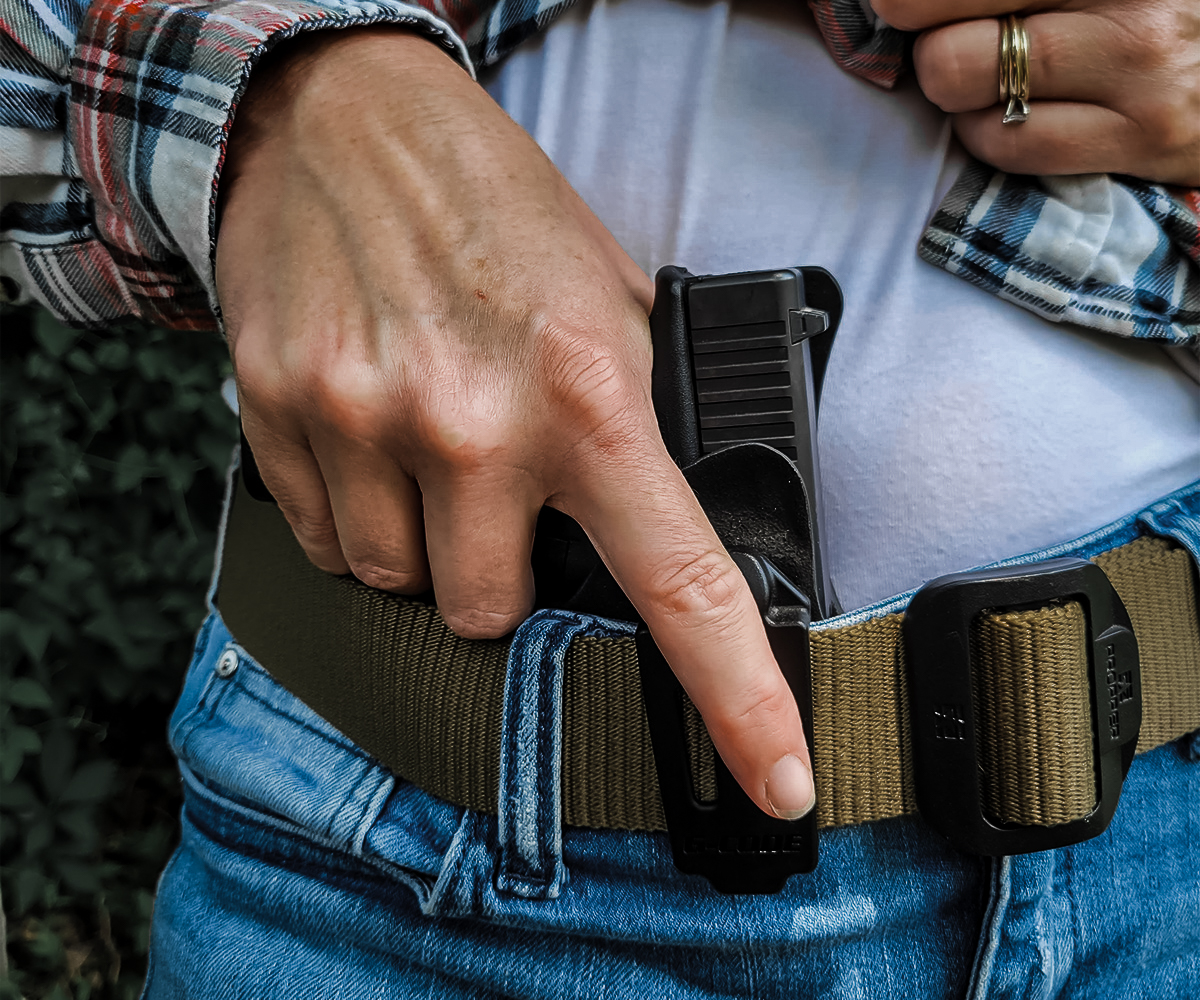
In some states, proving a shooting was justifiable can be more difficult than in others. Awareness of self-defense laws in a concealed carrier’s home state is vital.
“For example, in Texas, if someone commits a burglary, you can shoot them because we have self-defense rights. They are burglarizing your habitation, and that burglary starts at an attempt.
“If someone is trying to smash out the window of your home, you could shoot them right through the window, and that is likely justified. But if they’re just standing on your front porch with a crowbar hanging in their hands and haven’t tried to break out a window yet, if you shoot them, you’re going to prison for murder.
“It’s a minute difference, but it’s incredibly important.”
Taylor says that’s why it’s critical to know the law and find a practitioner who can tell you how the law is applied.
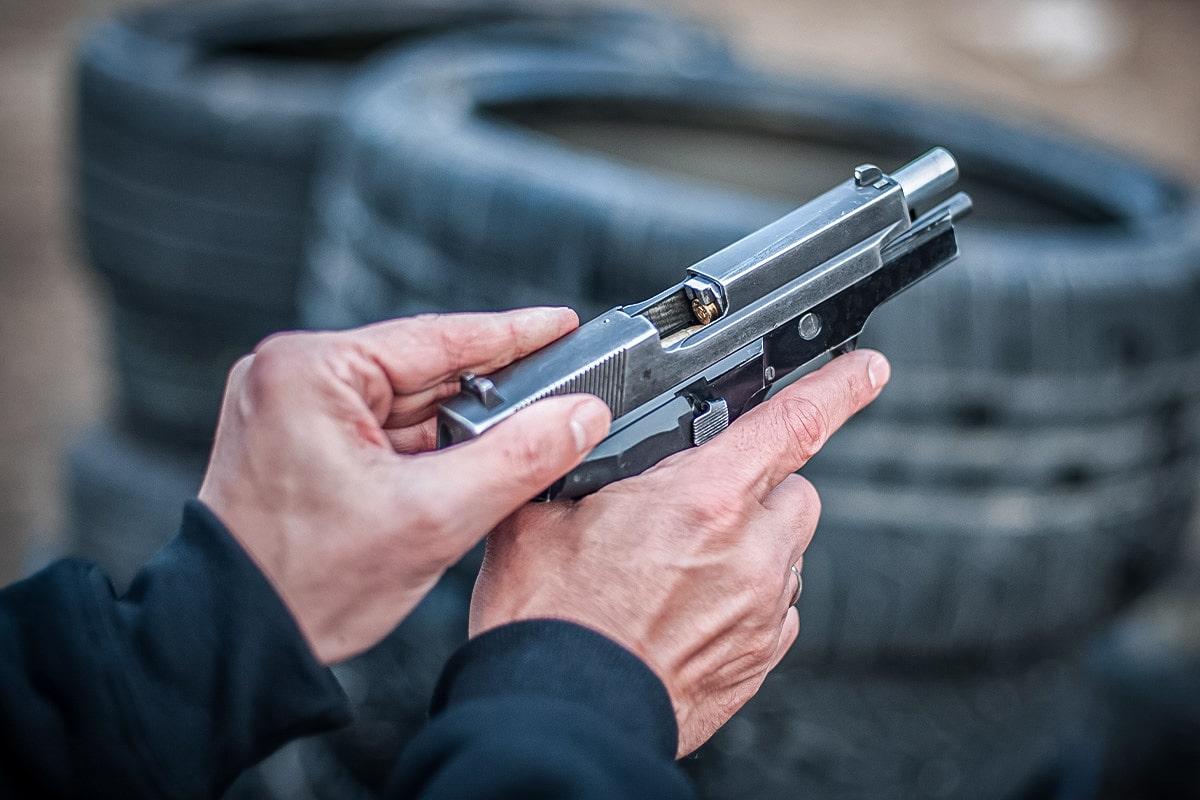
Taylor said you should run through scenarios in your head of what you would do to create muscle memory, just like when you practice with your carry pistol. That way, you already know what to do if someone breaks into your house, tries to carjack you at a gas station, or pulls a gun at a late-night ATM.
“Unfortunately, when you’re in one of those situations, your brain does some kooky stuff,” Taylor said. “You just have to hope and pray at that point that you’ve drilled into memory correctly.”
Taylor also strongly recommends carrying insurance or prepaid legal in your state.
“There are lots of good programs out there,” Taylor said. “They’re all different, so some might fit your needs better than others, but it is important to have something.”
Get legal advice from a local attorney familiar with your state’s self-defense and firearm laws.
David Maccar contributed to the content of this article.
READ NEXT – Glock 19: Evolution of the Ultimate Carry Gun



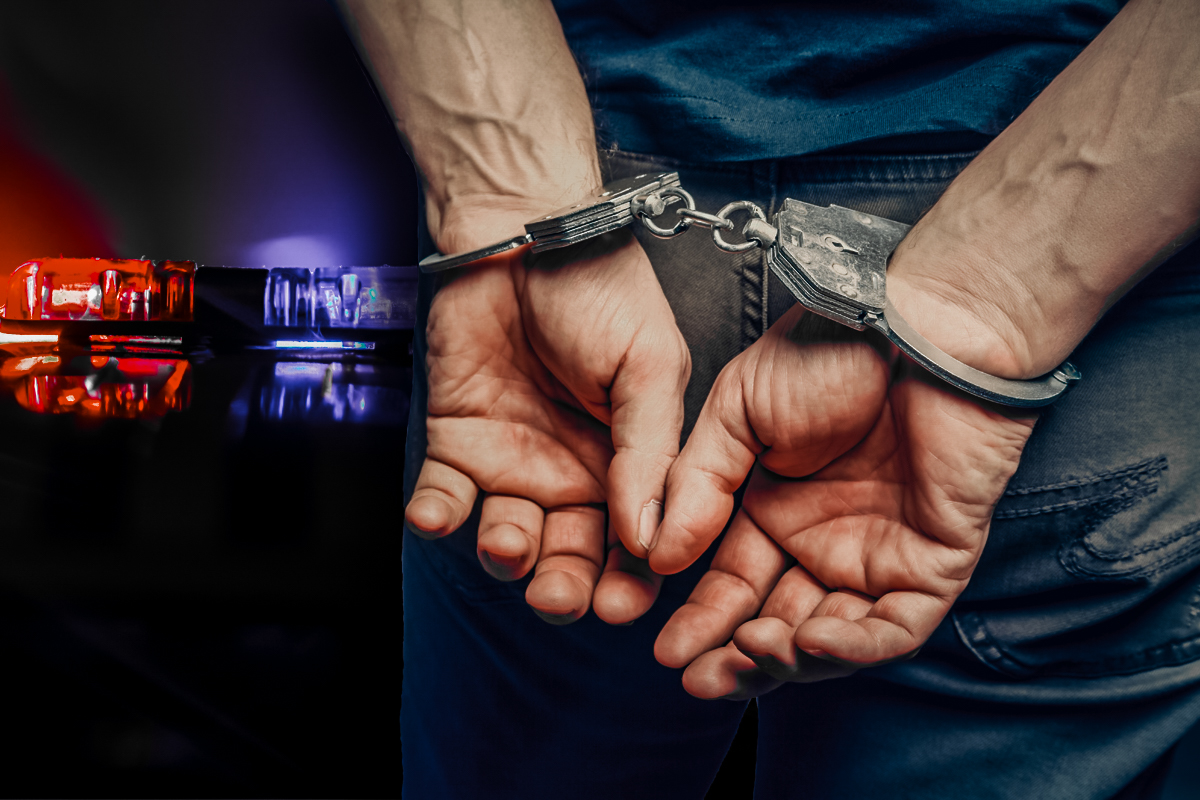

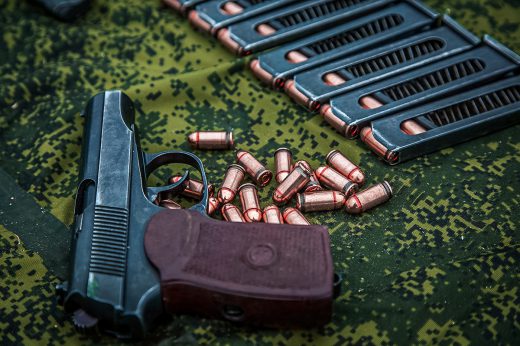
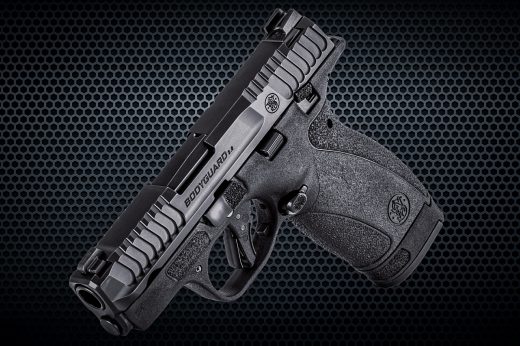
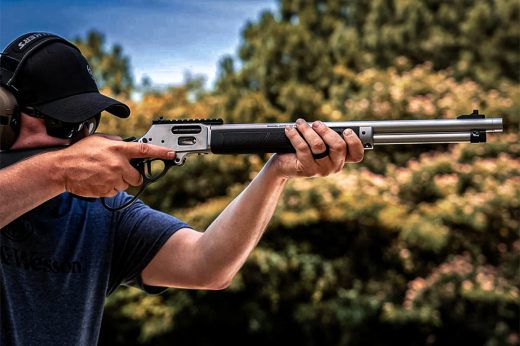


Comments